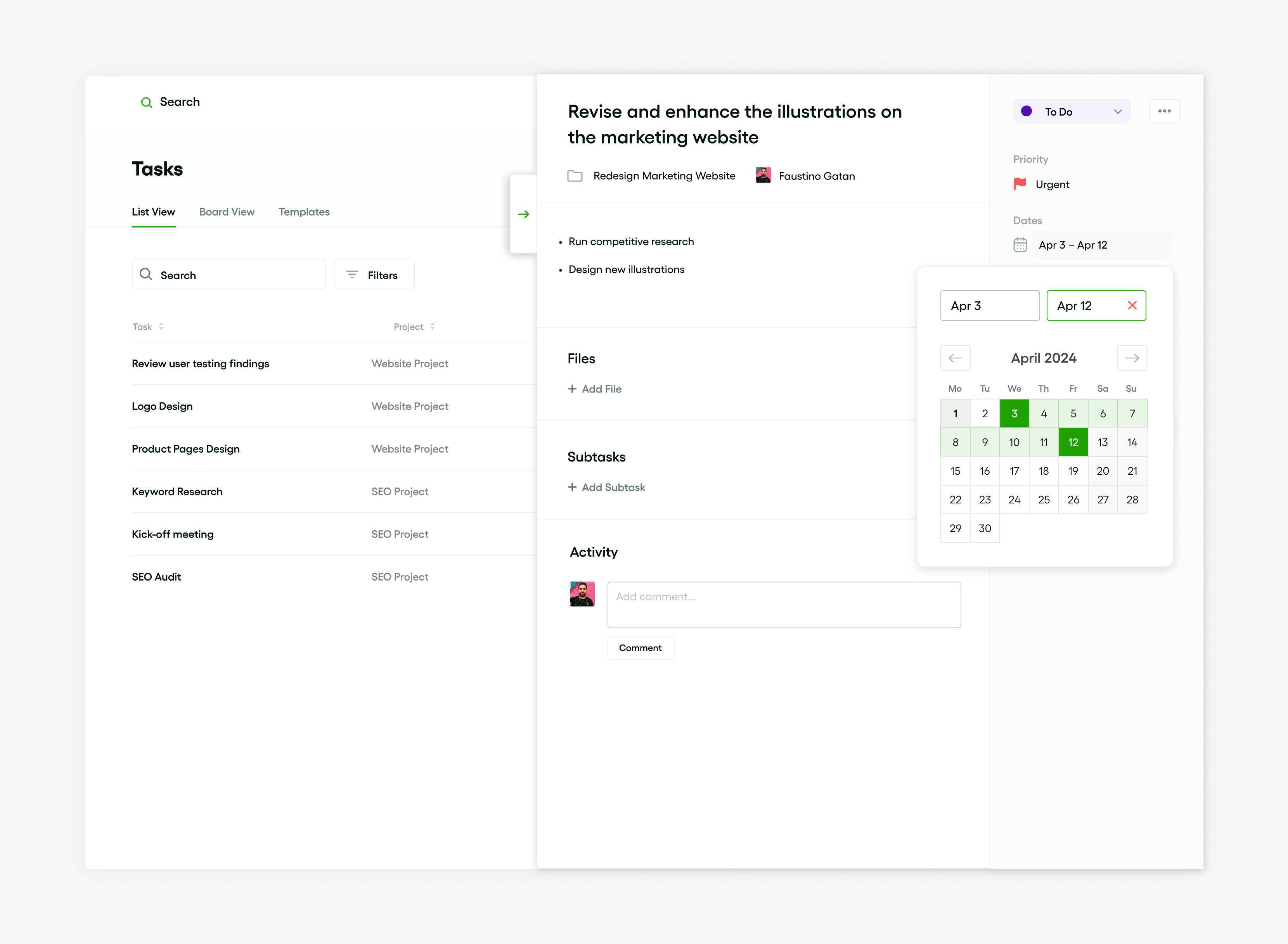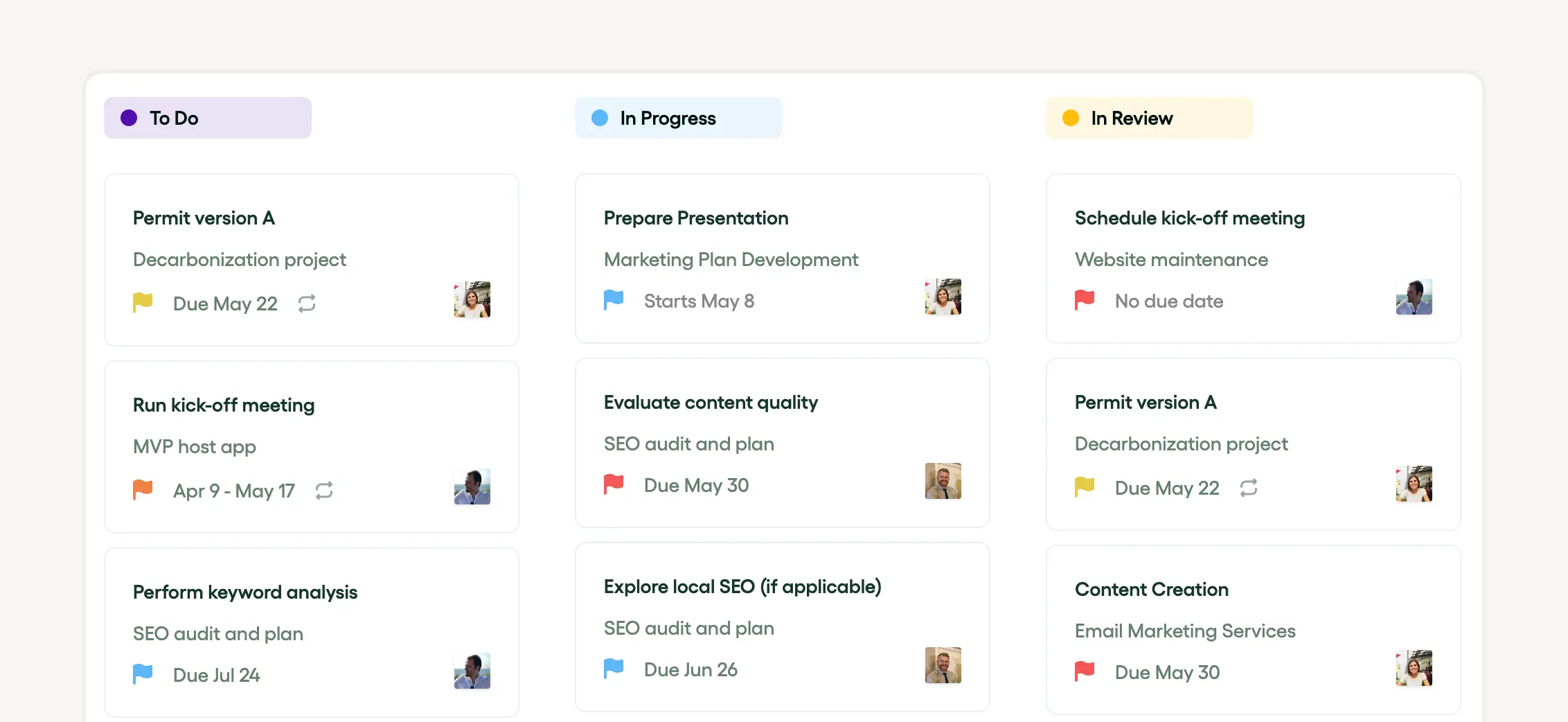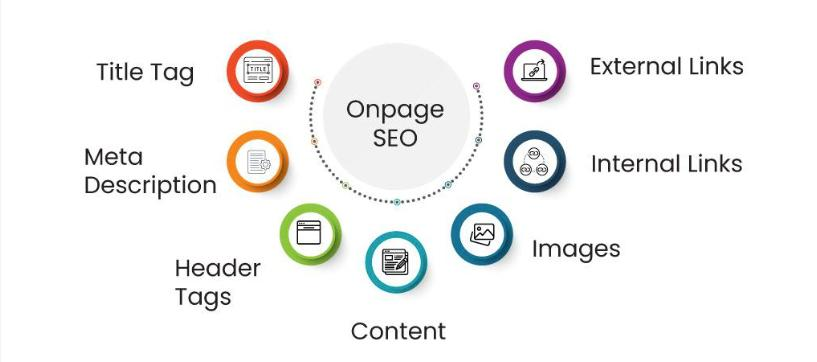Imagine the digital landscape as a crowded marketplace—everyone vying for attention, shouting into the void. Your mission? To rise above the noise. To do this, focus on optimizing your SEO strategy. Long-tail keywords—those quiet, specific phrases that yield lower search volume and keyword difficulty—are your secret weapon. They may seem small, but they can dramatically increase your search visibility, helping you carve out a niche in that bustling digital crowd.
But don’t stop there. Dive deep into comprehensive keyword research. Understanding the search queries your audience is targeting is like holding the map to hidden treasure. It’s not just about increasing your search rankings; it’s about driving organic traffic to your site, making sure every click counts.
And then there’s link building—both backlinks and internal links. These aren’t just technicalities; they’re the lifeblood of search engine optimization, giving your website the credibility it needs to succeed.
Understanding the importance of SEO for your agency
SEO isn’t just a tool; it’s the foundation of your agency’s online presence. It’s the difference between being seen and being invisible. By implementing a solid SEO strategy, you tap into the power of long-tail keywords, optimizing your content to match the search volume and keyword difficulty that matters.
But SEO doesn’t stop at keywords—effective link building with relevant backlinks and improved internal links is what truly drives your search engine optimization efforts forward.
When done right, SEO doesn’t just boost your search rankings; it significantly enhances your organic search results, bringing more eyes to your brand. Regular keyword research keeps you in tune with what your audience is searching for, allowing you to tailor your content strategies to meet their needs. It’s not just about being found; it’s about being found by the right people.
The role of SEO in digital marketing
In the vast ecosystem of digital marketing, SEO is the cornerstone that holds everything together. It’s what ensures your website doesn’t just exist but thrives. By focusing on search marketing visibility and keyword research, you can identify high search volume, long-tail keywords that come with less keyword difficulty—key elements that can dramatically improve your search rankings.
But SEO is more than just keywords. It’s also about link building, crafting a network of internal links and backlinks that push your site higher in search performance. An effective SEO strategy is what gets your business to the top of organic search results, expanding your reach and enhancing your online presence. In essence, SEO is the engine that drives your entire digital marketing campaign forward.
How SEO impacts your agency's online visibility
SEO isn’t just another marketing buzzword; it’s the pulse of your agency’s online visibility. With a well-executed SEO strategy, your search performance and rankings soar. It all starts with meticulous keyword research—focusing on those golden long-tail keywords with lower keyword difficulty but high search volume. This approach optimizes your content for the exact search queries your target audience is using, pushing your site higher in organic search results.
But SEO’s impact goes beyond keywords. It’s also about building strong backlinks and strategic internal links. These elements don’t just drive organic traffic; they ensure a steady growth in your search visibility, making sure your agency stays on the radar.
Keyword research: The foundation of SEO
Keyword research isn’t just a step in the process—it’s the very foundation of effective search engine optimization. It’s what ramps up your search visibility and fuels the increase in organic traffic. The secret? Long-tail keywords. These are the phrases that your audience is actually typing into search engines, and they’re crucial for climbing up the search rankings.
Understanding keyword difficulty and search volume helps you target these keywords effectively. But remember, keyword research is just one piece of the puzzle. Your SEO strategy should also include link building—creating valuable backlinks and utilizing internal links to boost your search performance. Each of these elements plays a vital role in making sure your site shines in organic search results.
Managing SEO campaigns effectively with Bonsai
Managing SEO campaigns can be quite challenging and time-consuming, but with Bonsai's project management tool, you can simplify the process and enhance your efficiency. Bonsai includes a variety of features aimed at helping you organize, automate, and monitor your SEO initiatives.
From setting up your project and breaking down tasks to automating reminders and tracking performance, Bonsai equips you with the necessary tools to keep your SEO campaign on course and reach your objectives. Whether you're working independently or as part of a team, Bonsai's user-friendly interface and powerful capabilities make managing SEO campaigns easier and more effective.
Let’s explore how you can use Bonsai to refine your SEO strategy and achieve better results.
1. Set up your project
Begin by signing up for Bonsai and creating a new project dedicated to your SEO campaign. This project will serve as the central hub for all your SEO activities. Break down your SEO strategy into actionable tasks like keyword research, content creation, and link building. Assign these tasks to team members, set deadlines, and monitor their progress.

2. Automate task management
Use Bonsai’s powerful task management features to automate and streamline your SEO tasks. You can set up recurring tasks for regular SEO activities, such as weekly keyword tracking or monthly content audits. Automated reminders and notifications ensure that nothing falls through the cracks, keeping your team on track and your campaign running smoothly.

3. Monitor and adjust your strategy
Regularly review the performance of your SEO campaign using Bonsai’s tracking and reporting tools. Analyze key metrics like organic traffic, keyword rankings, and conversion rates. Use these insights to adjust your strategy as needed, ensuring that your SEO efforts are always aligned with your goals and delivering the best possible results.
Bonsai helps you organize your SEO tasks and keep your team working together toward growth. By following these steps, you can effectively manage your SEO campaigns with Bonsai, making the process more organized and efficient.
Using Google Keyword Planner for effective keyword research
Google Keyword Planner isn’t just a tool—it’s your guide through the jungle of search visibility. This powerful resource helps you find those elusive long-tail keywords, the ones that align perfectly with the search queries your audience is using. It gives you a detailed look at search volume and keyword difficulty, helping you shape your SEO strategy with precision.
By leveraging Google Keyword Planner, you’re not just improving your search engine optimization efforts—you’re enhancing your search rankings and driving more organic traffic to your site. The tool also aids in refining your link building strategy, allowing you to see which keywords your competitors are ranking for. This insight is invaluable in crafting content that outperforms theirs, leading to higher organic search results.
Long-tail keywords: Why they matter
Long-tail keywords might seem like the underdogs of SEO, but they’re actually the unsung heroes. These specific phrases are what users are really searching for, and they come with a high search volume. What makes them even more valuable? Their low keyword difficulty, which increases the likelihood of your website appearing in organic search results.
These keywords are not just important—they’re essential. They’re a critical component of any SEO strategy, directly influencing your search rankings. Incorporating long-tail keywords into your keyword research isn’t just a good idea—it’s a necessary step to improve your search performance and enhance the effectiveness of your backlinks and internal links.
On-page SEO techniques to improve your website's ranking
On-page SEO isn’t just about tweaking a few things here and there—it’s about transforming your website into a search engine magnet. Start with thorough keyword research to understand the keyword difficulty and patterns of long-tail keywords. Then, optimize your website content with these keywords to improve your search rankings, making your site more visible in search queries.
But don’t stop at content. Link building is another crucial aspect of a strong SEO strategy. By enhancing the quality of your backlinks and crafting a robust internal linking strategy, you can significantly boost your website’s search performance. These on-page SEO techniques are the key to increasing your search visibility, leading to better organic search results and higher rankings.

Optimizing meta descriptions and title tags
Meta descriptions and title tags might seem like small details, but they’re actually powerful tools for enhancing search visibility. The trick? Optimizing them through careful keyword research, focusing on long-tail keywords with manageable keyword difficulty and substantial search volume.
By aligning these elements with the search queries your audience is using, you can significantly boost your search performance and organic traffic.
Optimizing these elements doesn’t just improve your organic search results—it has a strategic impact on your search rankings. Pair this with a solid link building strategy, incorporating both backlinks and internal links, and you’ve got a winning SEO strategy that drives results.
Importance of high-quality, SEO-friendly content
High-quality, SEO-friendly content isn’t just important—it’s the cornerstone of your search visibility. When your content aligns perfectly with search queries, and you strategically use long-tail keywords, your search rankings improve dramatically, leading to a surge in organic traffic. This is what drives your search performance, putting your site ahead of the competition in terms of search volume.
But there’s more to it than just keywords. A well-planned internal linking structure and a robust link building strategy are essential. These elements not only make your site easier to navigate but also strengthen your keyword strategy, ensuring that your backlinks are working as hard as they can to boost your site in organic search results.
Image optimization: A crucial aspect of on-page SEO
Image optimization is often overlooked, but it’s a game-changer for search engine optimization and boosting organic traffic. Properly optimized images enhance search visibility and improve search performance by ensuring fast load times and better user engagement. The key is to use long-tail keywords that match common search queries, increasing the chances of your site appearing in organic search results.
Image optimization isn’t just a nice-to-have; it’s a vital part of any SEO strategy. By understanding keyword difficulty and search volume through thorough keyword research, you can ensure that your images not only look great but also contribute to your overall search rankings. Properly optimized images can significantly boost your site’s backlinks and enhance your internal link building efforts, driving your SEO strategy to new heights.
Off-page SEO strategies for better organic performance
Crafting an exceptional SEO strategy isn’t just about what happens on your website; it’s about extending your reach beyond it. Off-page SEO strategies like link building are crucial for enhancing your search visibility and driving your organic performance to new heights.
Start by focusing on generating high-quality backlinks, as they are a powerful signal to search engines, indicating your site’s credibility and authority. The more quality backlinks you have, the more likely your search rankings will rise, pulling in more organic traffic.
Another pivotal off-page SEO tactic involves meticulous keyword research, with a particular emphasis on long-tail keywords. These keywords, though they might have lower search volume, often come with less competition, making it easier to rank higher for specific search queries.
While this might not seem directly related to off-page SEO, understanding which keywords to target can inform your overall content marketing management, including your outreach and link building efforts.
And though it’s technically not off-page, optimizing your internal links should not be overlooked. This can create a seamless navigation experience, further enhancing your search performance and solidifying your website’s SEO foundation.
Building high-quality backlinks
Building high-quality backlinks is a cornerstone of any robust SEO strategy. Backlinks act as votes of confidence from other sites, telling search engines that your content is valuable and trustworthy. When you earn these links from reputable sources, your search visibility skyrockets, and organic traffic follows.
The process isn’t just about collecting links; it’s about ensuring they’re coming from relevant, authoritative sites. Incorporating long-tail keywords into your link-building efforts can further target specific search queries, improving your search rankings even more. And remember, the foundation of any successful backlink strategy is solid keyword research. By understanding keyword difficulty and search volume, you can tailor your link-building strategy to maximize its impact, complementing internal links for an all-around boost in search performance.
Utilizing social media for SEO
Social media is more than just a platform for engagement—it’s a powerful tool in your SEO arsenal. When used strategically, social media can significantly improve your search visibility and organic traffic. One way to leverage this is by using long-tail keywords in your social media posts, tapping into specific search queries that can drive higher search rankings.
Sharing your content across social platforms not only increases its reach but also serves as a form of link building. These social signals, while not direct ranking factors, can enhance the effectiveness of your SEO strategy by driving more traffic to your site, which can improve its overall search performance.
Additionally, performing keyword research tailored to your social media content can help you align your efforts with high search volume queries, effectively overcoming keyword difficulty.
Technical SEO: Ensuring your website's health
Technical SEO is the backbone of a healthy, high-performing website. It’s about more than just content; it’s about ensuring that your site’s architecture and technical elements are optimized for search engines. This includes maintaining a consistent link-building strategy and using long-tail keywords wisely throughout your site’s internal links. These efforts enhance your site’s search visibility, making it easier for search engines to crawl and index your pages, which in turn drives more organic traffic.
Keyword research plays a crucial role here as well. By understanding keyword difficulty and search volume, you can make informed decisions about which technical aspects to prioritize for optimization. A well-executed technical SEO strategy ensures that your website not only ranks well but does so consistently, yielding strong, reliable organic search results.
Importance of mobile-friendly websites
In today’s mobile-first world, having a mobile-friendly website is not just an option—it’s a necessity. A mobile-friendly design enhances user experience, which directly influences your site’s search visibility, search queries, and ultimately, your search rankings. As more users access the internet via mobile devices, ensuring your website is responsive and easy to navigate on smaller screens can drive significant organic traffic.
From an SEO perspective, a mobile-friendly site also benefits your link-building efforts. Backlinks from mobile-friendly sites carry more weight, and your internal links will be more effective if your mobile design is seamless. Incorporating long-tail keywords that cater to mobile search behavior can further improve your organic search results, especially in overcoming keyword difficulty. Embracing a mobile-first approach will ensure your site remains competitive in the ever-evolving digital landscape.
Site speed optimization using Google PageSpeed Insights
Google PageSpeed Insights is a crucial tool for optimizing site speed, a key factor in SEO success. Site speed directly impacts user experience, which in turn influences organic search results and overall search engine optimization. Faster-loading sites not only rank higher in search results but also retain users longer, reducing bounce rates and improving overall search performance.
Using PageSpeed Insights, you can identify areas where your site’s loading time can be improved. This includes optimizing images, leveraging browser caching, and minimizing CSS and JavaScript. Each of these optimizations contributes to better search visibility and more organic traffic. Additionally, optimizing your site speed can make your link-building efforts more effective, as both internal links and backlinks will perform better on a faster, more responsive site.
Implementing SSL to boost SEO
Implementing SSL (Secure Sockets Layer) is a simple yet powerful way to boost your SEO strategy. Search engines like Google favor secure websites, and having SSL can significantly increase your search visibility. SSL not only protects your site but also enhances its trustworthiness, which can reduce keyword difficulty by making it easier to rank higher in search results.
This increase in search rankings naturally leads to more organic traffic. SSL also plays a crucial role in safeguarding sensitive search queries and managing internal links securely. A secure site is more likely to attract quality backlinks, which further enhances your link-building efforts and overall search performance.
Using SEO tools to enhance your strategy
SEO tools are indispensable for enhancing your strategy, ensuring that your website achieves maximum search visibility and effectively targets long-tail keywords. These tools offer in-depth keyword research, allowing you to gauge keyword difficulty and track search volume with precision.

Advanced SEO practices involve constant monitoring of organic search results, search rankings, and backlinks, all of which are essential for effective link building. By combining the power of backlinks with strategically placed internal links, you can significantly improve your search engine optimization. Leveraging SEO tools can exponentially increase your site’s organic traffic and search performance, making them a critical component of a successful SEO strategy.
SEMrush: A comprehensive SEO tool
SEMrush is a comprehensive SEO tool designed to take your search visibility and search rankings to the next level. It’s your go-to for identifying long-tail keywords, analyzing keyword difficulty, and monitoring organic search results. By aggregating search volume data and conducting detailed keyword research, SEMrush helps you optimize your site for the most relevant search queries, ensuring your SEO strategy is as effective as possible.
SEMrush also enhances organic traffic by managing backlinks and internal links through effective link building. It’s a one-stop solution for all your search engine optimization needs, giving you the insights and tools to boost your website’s search performance and achieve your SEO goals.
Yoast SEO: Simplifying on-page SEO
Yoast SEO is a must-have tool for simplifying on-page SEO, central to improving your website’s organic search results. It’s designed to help you maximize search visibility by optimizing your content with long-tail keywords that have the right balance of search volume and keyword difficulty.
Yoast also assists in fine-tuning your internal links and supports your link-building efforts, ensuring that every part of your SEO strategy is working in harmony.
With Yoast SEO, you can significantly improve your search rankings and search performance, leading to increased organic traffic. The tool also provides insights into managing backlinks, another crucial factor in achieving SEO success. In short, Yoast SEO is your guide to mastering on-page optimization and driving your website to the top of search engine results.
Keeping up with SEO trends and Google algorithm updates
In the ever-shifting landscape of SEO, staying current with trends and Google Algorithm updates is not just advisable—it’s essential. The digital environment is fluid, and your SEO strategy must be equally adaptable. Regularly revising your approach, particularly in areas like long-tail keywords, search queries, and keyword difficulty, is crucial to maintaining or achieving higher search rankings.
Emphasizing ongoing keyword research and understanding search volume are foundational steps in enhancing organic search results. But that’s not where it ends—developing a robust link-building strategy that leverages both backlinks and internal links is equally critical.
These efforts combined ensure that your search engine optimization remains sharp, relevant, and effective, keeping you ahead in the competitive online space.
Understanding Google's core web vitals
Google’s Core Web Vitals are more than just technical metrics—they’re pivotal elements that determine your website’s user experience and, by extension, its search visibility and rankings. These vitals focus on three primary areas:
- Loading time: How quickly the main content of a page loads.
- Interactivity: The speed at which a page responds to user inputs.
- Visual stability: Ensuring that elements on a page don’t shift unexpectedly as it loads.
Optimizing these aspects isn’t just a technical exercise; it’s a direct pathway to improving your organic search results and driving more organic traffic to your site. In today’s SEO landscape, paying attention to Core Web Vitals is no longer optional—it’s a necessity.
Staying updated with SEO blogs and forums
To keep your SEO strategy effective and up-to-date, immersing yourself in SEO blogs and forums is a must. These platforms are goldmines of current trends, best practices, and emerging strategies that can significantly enhance your search engine optimization efforts. By engaging with these resources, you’ll gain insights into crucial areas such as keyword research, keyword difficulty, and the strategic use of long-tail keywords.
Moreover, these forums and blogs often discuss the importance of backlinks and internal links in boosting search visibility. They also provide tips on optimizing search performance by understanding search queries, analyzing search volume, and enhancing organic search results. Staying informed and active in these communities can empower you to implement effective link-building techniques and refine your overall SEO strategy.
Measuring SEO success: Key metrics to monitor
To gauge the success of your SEO efforts, tracking key metrics is essential. One of the most important metrics is search visibility, which indicates how often your site is clicked on from organic search results. Focusing on long-tail keywords, which typically have lower keyword difficulty, can significantly enhance this metric by driving more targeted organic traffic to your site.
Another critical metric is the number of backlinks pointing to your site. A successful link-building strategy, which should include both quality backlinks and internal links, is instrumental in improving your search engine optimization. Additionally, keeping an eye on search volume and search queries can refine your keyword research and help you optimize your search rankings more effectively.
Using Google Analytics to track SEO performance
Google Analytics is a powerful tool in your SEO arsenal, providing deep insights into your website’s organic traffic and overall search performance. By analyzing organic search results, search queries, and keyword difficulty through this tool, you can continuously adapt and fine-tune your SEO strategy.
Google Analytics allows you to dive into detailed keyword research, revealing popular long-tail keywords and their associated search volume, guiding where to focus your efforts for better search visibility. Additionally, it provides a clear view of your link-building strategy’s impact, including both backlinks and internal links. Leveraging Google Analytics in this way is crucial for boosting your search rankings and enhancing your overall search engine optimization efforts.
Understanding SERP rankings and organic traffic
Search Engine Results Page (SERP) rankings and organic traffic are the twin pillars of any successful SEO strategy. Achieving high search visibility and increasing organic traffic requires a strategic focus on long-tail keywords, which, despite lower keyword difficulty, can yield high search volume and drive your site higher in organic search results.
Effective keyword research is the key to identifying these valuable keywords. Improving your search rankings further demands a comprehensive link-building strategy, incorporating both high-quality backlinks and strategic internal links. Backlinks, in particular, are vital for improving search performance, while internal links help search engines better understand your site’s content. A well-balanced approach to these elements is essential for significantly boosting your site’s SERP rankings and organic traffic.








